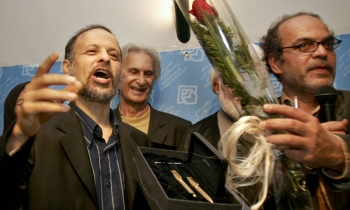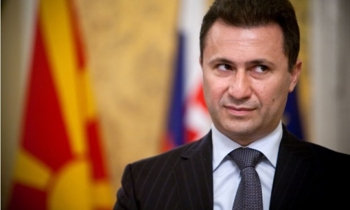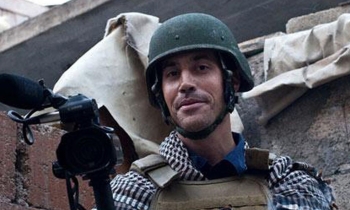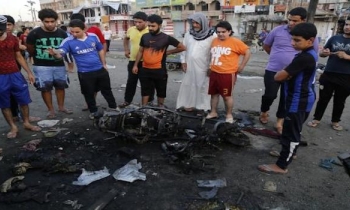The Chechnya prosecutor’s office is investigating officers of the southern republic’s Interior Ministry in connection with articles by the slain investigative reporter Anna Politkovskaya, according to the Moscow business daily Kommersant.
The daily Wednesday quoted Chechnya prosecutor Valery Kuznetsov as saying that Politkovskaya’s accounts of alleged torture last spring prompted his office to investigate several Interior Ministry officers. Kuznetsov said his office had obtained a video from Politkovskaya’s newspaper, Novaya Gazeta, that appeared to show instances of abuse.

The prosecutor did not say whether there was a link between the investigation of the Chechnya police officers and the probe of Politkovskaya’s October 2006 murder. The murder inquiry is under the control of the prosecutor general’s office in Moscow.
Foreign Ministry officials told a delegation of the New York-based Committee to Protect Journalists (CPJ) on Monday that the prosecutor-general was investigating several police officials in Chechnya who may have killed Politkovskaya because of her reporting on torture allegations. Government officials later disputed CPJ’s account, while acknowledging that several theories were being pursued, including one related to Politkovskaya’s work.
“We’re encouraged to hear that the investigation is continuing and that there is a possibility the perpetrators of this heinous crime will be apprehended and prosecuted,” said Paul Steiger, CPJ board chairman and managing editor of The Wall Street Journal, who led the delegation in Moscow. Foreign Ministry officials, disclosing the lead involving the Chechnya police, noted that it was one of several theories being pursued in the slaying of Politkovskaya, who was gunned down in her Moscow apartment building on October 7, 2006.
Meanwhile, the Parliamentary Assembly of the Council of Europe (PACE), at the request of the Russian delegation, has withdrawn its demands the Russian parliament should conduct an independent investigation into the killing of Politkovskaya, according to news agency Itar-Tass.
While discussing a draft resolution on threat to journalists’ life and security, PACE introduced an amendment to exclude the provision on Politkovskaya’s murder from the document. The head of the Russian delegation, Konstantin Kosachev, said a parliamentary investigation will be expedient, if investigators’ professionalism raises doubts. “In Politkovskaya’s case there are no doubts on the course of investigation,” the diplomat said. He pointed out that a parliamentary investigation will only hamper the professional one.

Russia is the third deadliest country for reporters worldwide, according to a recent CPJ study. Politkovskaya, the most recent victim, was shot after returning from grocery shopping. The killer, who was seen on the building’s security camera system, shot Politkovskaya in the body and in the head before tossing his gun to the ground and walking away. Little progress has been reported in the investigation, although Russian President Vladimir Putin told German Chancellor Angela Merkel in a meeting Sunday that the probe was going “at full speed.”
The CPJ delegation called for greater transparency and accountability among Russian law enforcement authorities, including the prosecutor general’s office and the Federal Security Services. CPJ research shows that Russian police and prosecutors have routinely failed to investigate journalist murders thoroughly, have neglected to consider work-related motives in the cases, and have provided victims’ families and colleagues with little information about the probes. By failing to solve these murders and by wrapping the inquiries in secrecy, journalists have told CPJ, the government has effectively discouraged reporters from covering sensitive subjects such as corruption and human rights violations.
Of the 13 journalist murders since 2000, only the killings of Igor Domnikov, Aleksei Sidorov, and Paul Klebnikov resulted in arrests and trials of suspects. But, even then, prosecutions have fallen short of convictions. Two men accused of killing Klebnikov, the Forbes Russia editor slain on a Moscow street in 2004, were acquitted in May 2006 after a trial marred by procedural irregularities. The Russian Supreme Court later overturned the verdict and ordered a new trial, but the suspects are not in custody. The CPJ delegation called on authorities to ensure that the suspects are brought to a new trial as ordered by the court.









